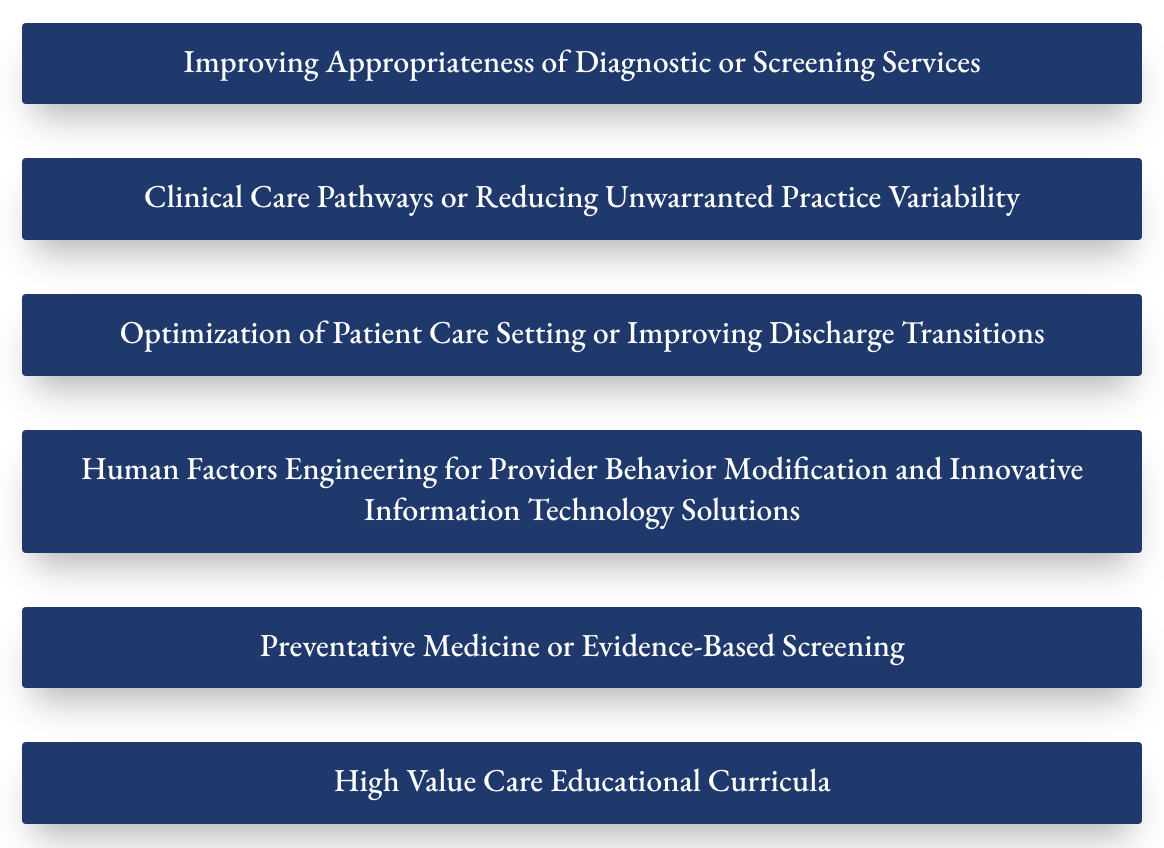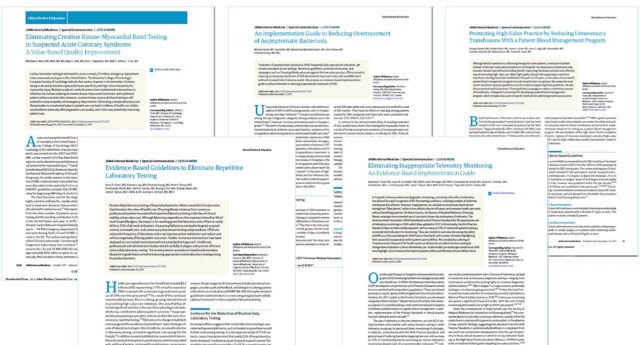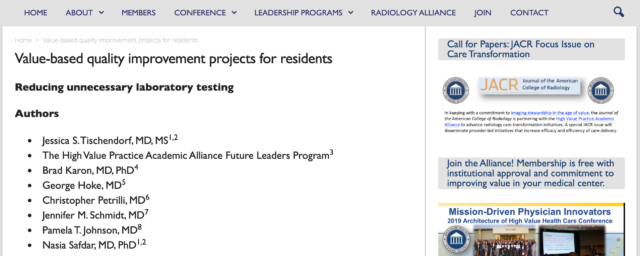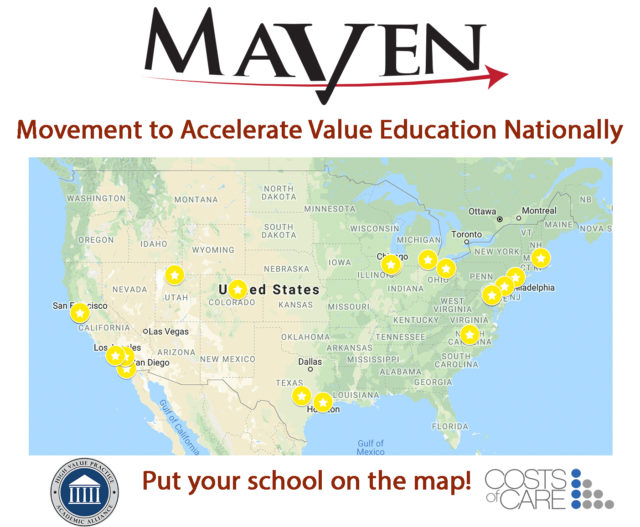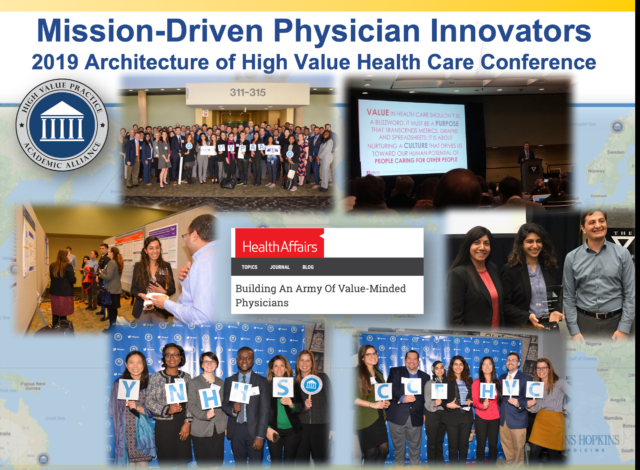From the 2019 HVPAA National Conference
Dr. Rachna Rawal (Saint Louis University), Dr. Paul Kunnath (Saint Louis University), Dr. Oluwasayo Adeyemo (Mount Sinai Baltimore), Dr. Fred Buckhold III (Saint Louis University), Dr. Jennifer Schmidt (Saint Louis University)
Background
Literature shows interns’ ordering behavior and diagnostic reasoning is influenced by those training them—including their senior residents. To promote more mindful lab ordering among residents, we conducted education sessions targeted at the intern-senior resident discussion—to empower interns and give senior residents the skills to talk about lab indications. Education sessions occurred during key transition periods in residency—entering interns and new seniors—to optimize residents engagement.
Objectives
Target audience: Internal Medicine residents.
1. Provide senior resident tools to teach interns mindful lab ordering
2. Empower interns to discuss laboratory orders with their team
3. Promote mindful lab ordering
Methods
Transition period curriculum occurred during intern boot camp (beginning of PGY-1 year) and senior boot camp (end of PGY-1 year) for two consecutive years. Interactive case sessions tailored to training level discussed significance of lab testing, indications, and of high-value care basics. Senior resident boot camp included coaching on teaching interns mindful lab ordering habits. Internal medicine resident attitudes and perceptions were assessed via pre/post surveys.
Results
70% of incoming interns reported no prior education on high-value care with 65% reporting feeling comfortable discussing test indication with their team. Prior to initiation of this curriculum, 50% of residents reported feeling uncomfortable if patients did not have morning labs, decreasing to 27% after two years (p<0.05). 79% of residents felt unnecessary medical tests were an overlooked issue at our institution. [JS1]
Six months after intern boot camp, 100% of interns reported that the information presented on high-value care in intern boot camp was pertinent to their inpatient rotations; 89% reported it has impacted their patient management decisions. 90% of senior residents felt that the senior boot camp sessions were helpful when teaching their interns how to order labs. 93% of interns felt comfortable in telling their team that labs may not be indicated for a patient. 60% of all residents reported that senior residents were engaging the team in discussions on labs for the next day for patients. 78% of interns reported that senior residents talked about mindful lab ordering. 86% of senior residents reported teaching interns mindful laboratory ordering habits.
Conclusions
While our interns come from different backgrounds, they all reported no previous high-value care education. Based on their post-bootcamp responses, we believe that the education they received at intern boot camp empowered them to discuss labs with their team. Additionally, both senior residents and interns confirmed that senior residents were teaching mindful laboratory habits to their interns. By providing education in key transition periods, all residents had similar expectations and goals for mindful laboratory ordering; hence, allowing them to feel less “uncomfortable” without morning labs for their patients and increasing high-value care discussions.
Clinical Implications
It is crucial to provide coaching to interns transitioning to senior residents, including how to instill high-value care habits to interns. Additionally, by introducing these concepts to interns during their orientation, it allows them to immediately integrate them into their practice, creating a high-value care habit.
